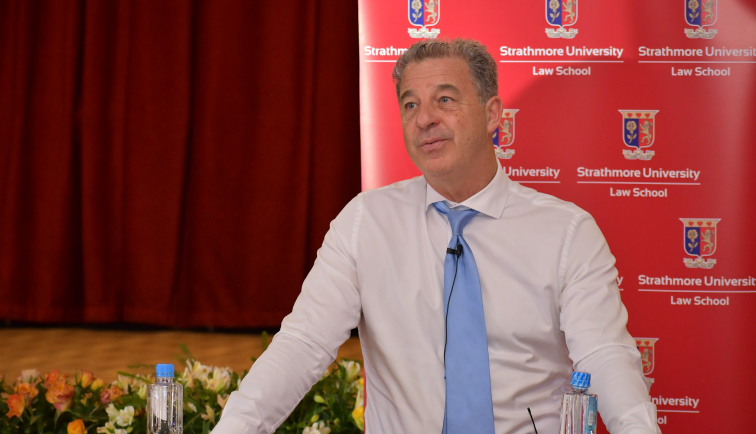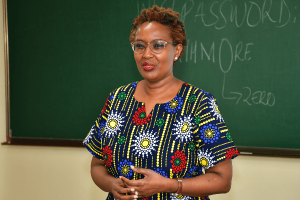Lecture by Dr Serge Brammertz on the Future of International Criminal Justice

On 12 March 2021, Strathmore Law School students of third-year and fourth-year classes had the privilege to attend a guest lecture by Serge Brammertz at the Strathmore University Main Auditorium. Serge serves at the United Nations International Residual Mechanism for Criminal Tribunals as the Chief Prosecutor. He has vast experience in prosecuting international crimes among other roles within the public sector in the international sphere. The lecture sought to provide an overview into the future of International Criminal Justice. Aside from the overview, a conspectus of the achievements, failures and the dynamics behind the administration of prosecutorial roles within international judicial bodies was also highlighted.
As he began to speak, it was evident that passion is a huge motivating factor behind Dr Brammertz’s decision to serve as a prosecutor. As a prosecutor, striking a balance between peace and justice is a fundamental pillar to factor in. Justice would ensure that individuals can be held accountable for their past actions. Peace, on the hand, seeks to establish that the victims of international crimes are able to live harmoniously within society- in some instances even with the alleged perpetrators of the crime.
He went on to demonstrate how International Criminal Justice is a fundamentally politicised territory. And this, in many ways, has been affecting both peace and justice in many war-torn zones in the world such as Syria and Yemen. He particularly emphasised that peace and justice have not been achieved in such zones because of the lack of political good will on the part of the United Nations Security Council as well as domestic jurisdictions in helping prosecute international crimes.
Despite the fact there may be several factors that impede an effective public prosecution, prosecutors ought to focus on the end goal- advancing justice to the victims of international crimes. It was evident from the lecture that challenges are unavoidable in the prosecution of international crimes. However, if prosecutors could uphold a high standard of service delivery and persistence, justice will always prevail at the end despite the delay in realising it.
The Chief Prosecutor, however, did not seem to have so much faith in the efficiency of restorative justice in paving the way for peace and justice. This came out clearly when he replied to one of the questions that students asked him on this subject. He termed restorative justice as of more theoretical than practical importance, at least from his 20+ years of experience in matters of international criminal justice. For him, trading impunity for peace does not translate into long-term peace.
While the Chief Prosecutor concluded his lecture by maintaining that the future of international criminal justice will primarily come from the political good will of national jurisdictions in prosecuting international crimes, it is our humble belief that restorative justice should have a seat of recognition in such a future, particularly if we take status Libya as an example. ‘Restorative justice assumes a system that focuses on the harm done and how to prevent and fix it—as opposed to the offender’.
All in all, it was a great lecture. It is not an every-day thing to intellectually engage the Chief Prosecutor of the United Nations International Residual Mechanism for Criminal Tribunals.
Article by Nciko Wa Nciko (SLS Graduate Assistant) and Elvis Cosmos (third year student and President of Strathmore Law Clinic)



